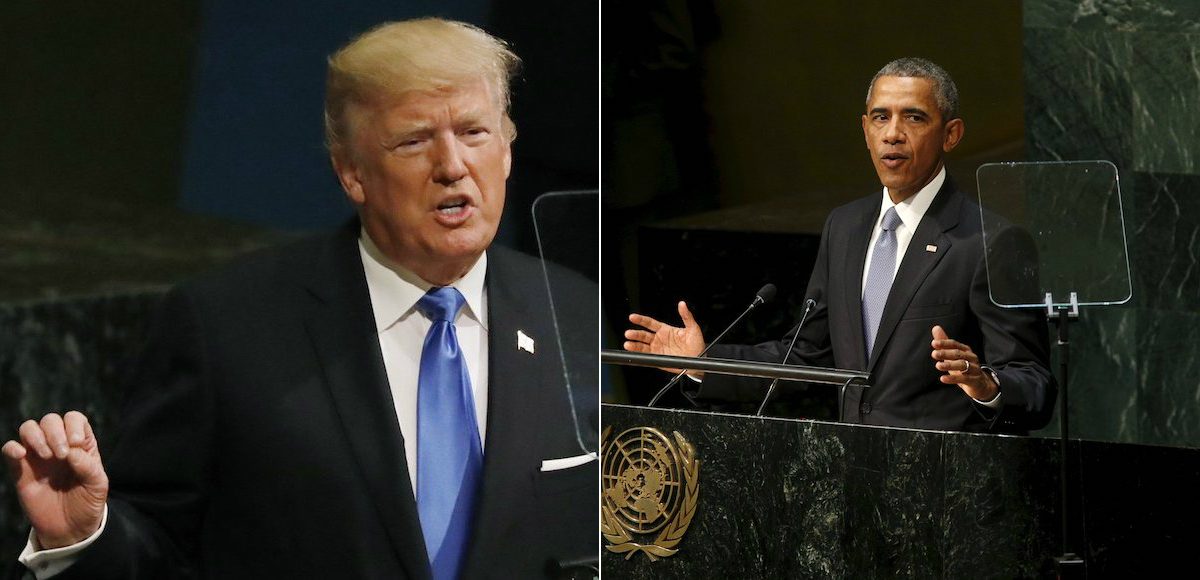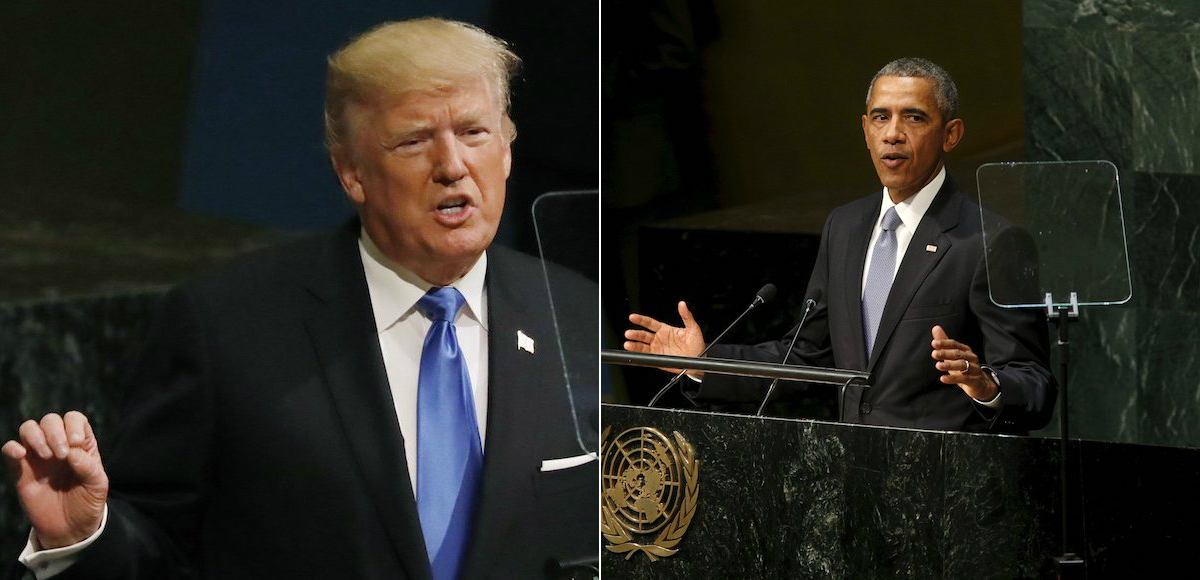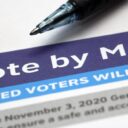

President Donald Trump, left, addresses the 72nd United Nations General Assembly (UNGA) at U.N. headquarters in New York, U.S., September 19, 2017, while former President Barack Obama, right, addresses the UNGA on September 28, 2015. (Photos: Reuters)
President Donald Trump on Tuesday delivered his first address to the United Nations (UN) General Assembly, laying out the tenets of principled realism and America First. It stood in stark contrast to the first UNGA address given by his predecessor Barack Obama, which critics said amounted to an apology for American power and a promise to scale it back.
Under Mr. Obama, American voters had little confidence the United States (US) would still be the top superpower at the end of the 21st century. Now, more voters think the U.S. will remain the most powerful nation under President Trump than they did under Mr. Obama, a new poll finds.
Further, belief in the idea of American exceptionalism is also significantly higher than just two years ago. Sixty-nine percent (69%) of likely voters say the U.S. is more exceptional than other nations, up from 57% measured in 2015.
In 2014, only 23% believed the U.S. would remain the world’s top superpower, which rose but to a still unimpressive 33% in March 2016. A new Rasmussen Reports national survey finds 40% of likely voters now think the U.S. will still be the world’s most powerful nation at the end of the century, including 40% of white voters, 39% of black voters and 43% of voters self-reporting as Hispanic or other.
Only 24% disagree, which is down significantly from the 48% measured 3 years ago, while 36% are not sure.
Unsurprisingly, 61% of those who strongly approve of the job President Trump is doing and 39% who at least somewhat approve say the U.S. will remain the world superpower. Even 42% of those who somewhat disapprove agree, as do 28% of those who strongly disapprove.
That also includes 56% of Republicans, 30% of Democrats and 35% of unaffiliated voters. Thirty-percent (30%) of Republicans, 39% of Democrats and 40% of unaffiliated voters say they are unsure.
The survey of 1,000 Likely Voters was conducted on September 18-19, 2017 by Rasmussen Reports. The margin of sampling error is +/- 3 percentage points with a 95% level of confidence.







